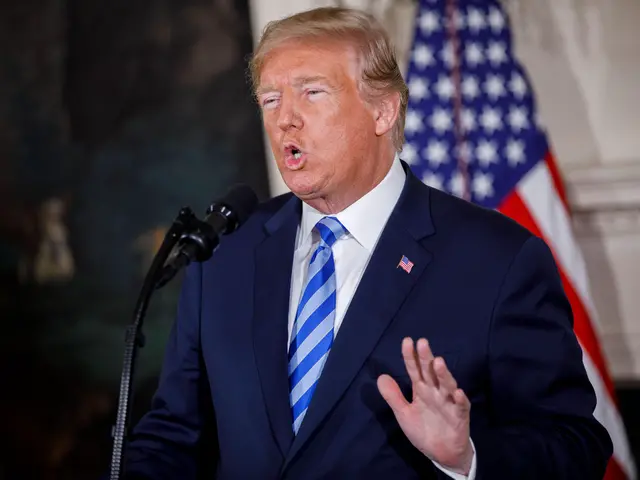Iowa, a state in the Midwestern United States, is to hold Democratic and Republican caucuses on Monday, the first nomination contests on the 2020 presidential primary schedule.
On the Republican side, President Donald Trump, as the incumbent, is expected to sail through the caucus night and turn much of the nation's attention to the Democratic events.
Democrats seeking the party's nomination to challenge Trump will vie for Iowa's 41 pledged delegates to the Democratic National Convention, which will be held on July 13-16 in Milwaukee, Wisconsin.
Though the delegates Iowa have account for only 2 percent of the 1,991 national delegates a candidate needs to win to be the Democratic nominee, a strong finish across the Hawkeye state's 99 counties could inject a strong momentum into his or her campaign in a crowed race.
"Iowa is a gatekeeper. It's a table setter. It historically has been an extremely important part of the presidential process," veteran U.S. pollster John Zogby told a recent briefing in Washington D.C.
The Democratic caucuses are scheduled to begin at 1,678 precinct locations at 7 p.m. CT on Monday (0100 GMT on Tuesday) and to bring tens of thousands of Iowa's registered voters to people's homes, churches, public libraries, and school gyms.
Unlike a traditional primary, in which voters cast ballots, caucuses requires people to show up to their precinct and physically move into designated parts of a room to show their preference for a certain candidate, the first step of which is commonly called "the first alignment."
At most precincts, a presidential contender needs at least 15 percent of the support at that caucus site to be eligible to receive any delegates. If he or she does not meet the threshold, they get no delegates, and their supporters can re-sort and go to their second choice in the next -- and final -- alignment.
For the first time, caucus-goers this year will write down who they are supporting so there will be paper backups, in case recounts are necessary.
After the caucuses, the Iowa Democratic Party will report three numbers: the statewide preference after the first alignment; the preference after the second alignment; and the final "State Delegate Equivalents (SDEs)," numbers used to determine how the state's national delegates are awarded to candidates.
While the first two results will be useful for analyses, the candidate who earns the most SDEs will surely declare himself or herself the winner of the Iowa caucuses.
Currently, there are 13 Democrats and three Republicans, including Trump, seeking the presidential nomination of their own parties, while 17 Democrats and one Republican have dropped out of the race in this election cycle.
According to the latest RealClearPolitics national Democratic primary polling average, former Vice President Joe Biden is leading with 27.2 percent, followed by Senators Bernie Sanders and Elizabeth Warren with 23.5 percent and 15 percent respectively.
Sanders, meanwhile, is the frontrunner in the Iowa polling average, together with Biden, former Mayor Pete Buttigieg of South Bend, Indiana, and Warren rounding out the top four.
Michael Bloomberg, who made a relatively late entry into the Democratic primary, is skipping early-voting states, including Iowa. The billionaire former New York City mayor will be holding events in California on Monday, according to his campaign.
Trump won't be in Iowa on Monday either but he held a rally in Des Moines, the state's capital, days ago. The Republican Party is expected to nominate Trump for a second term during the Aug. 24-27 national convention in Charlotte, North Carolina.
The Iowa caucuses will be followed by the New Hampshire presidential primary, slated for Feb. 11.
The 2020 U.S. presidential election will take place on Nov. 3.
 简体中文
简体中文

